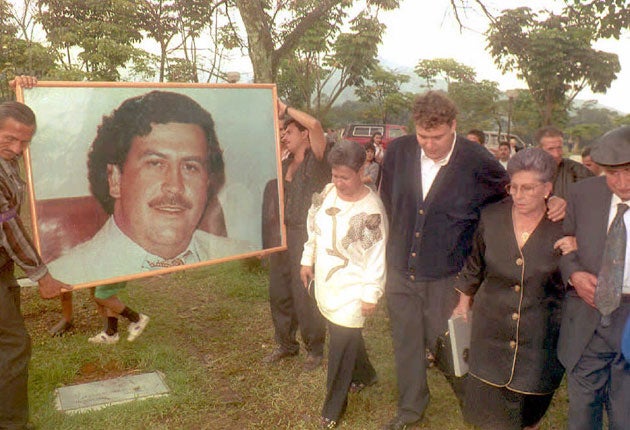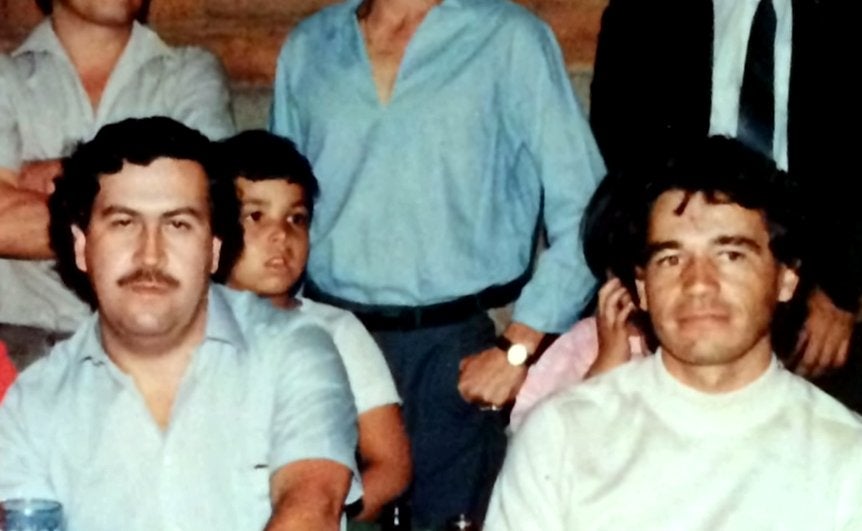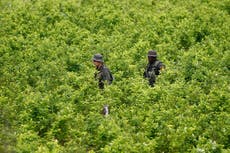Sanctuary for Pablo Escobar’s family in UK was part of secret deal
World’s most infamous drug lord was planning to surrender on condition his wife and children were given asylum, with Britain named as a ‘preferred destination’

A secret proposal to give sanctuary to Pablo Escobar’s family in the UK has come to light.
Colombian authorities told diplomats the world’s most infamous drug lord was planning to surrender on the condition that his wife and children were given asylum, with Britain named as the “preferred destination”, newly released documents from 1993 have revealed.
Born in the slums of Medellin, Colombia’s second-largest city, Escobar rose to build a billion-dollar drug cartel which controlled around 80 per cent of the world’s cocaine trade and made an estimated £340m a week.

The files, now in the national archives in Kew, southwest London, show Colombia’s attorney-general, Gustavo de Greiff, unexpectedly visited the British embassy in September 1993, with a proposal in mind.
“He said that Pablo Escobar was ready to surrender himself provided that his family could go abroad for a time until things quietened down,” read a memo sent to London, according to The Times. “Britain had been indicated as the preferred destination. De Grieff said that the family members concerned were his wife, son, daughter, two sisters, one brother and eight nephews and nieces.”
Colombia’s foreign minister, Noemi Sanin de Rubio, directly approached Britain’s permanent representative to the UN, David Hannay, in an attempt to cement an agreement. “Sanin said it was important that the request be treated in utmost confidence,” wrote Hannay. “If the UK agreed to admit the family, the Colombian government would not wish it to be known that it had played any role.”
The proposal appears to have perturbed Whitehall, as revealed in a response sent on 7 October, 1993. “Escobar is a ruthless drugs trafficker and terrorist,” it stated. “He is responsible for the murder of hundreds and perhaps thousands of people. His family live on [his] earnings from the drugs trade.”
It also warned of the dangers such a deal could put UK staff based in Colombia in, while adding that violence could follow the family into Britain.
The then home secretary, Michael Howard, imposed an exclusion order on the Escobars. When a first cousin, Nicolas Enrique Escobar Urquijo, arrived at Heathrow airport in November 1993, the order was enforced, while the rest of his family were denied entry at Frankfurt airport and sent back to Bogota.

Weeks later, Escobar was shot dead on a Medellin rooftop in a gunfight.
The drug lord’s wife and children were given asylum in Argentina after being rejected by Germany and Mozambique.
Mr Howard, 82, who is now Lord Howard of Lympne, said he did not remember blocking the Escobar family, adding: “I knew of Escobar and went to Colombia, but that was after his death.”
Join our commenting forum
Join thought-provoking conversations, follow other Independent readers and see their replies
Comments


Bookmark popover
Removed from bookmarks